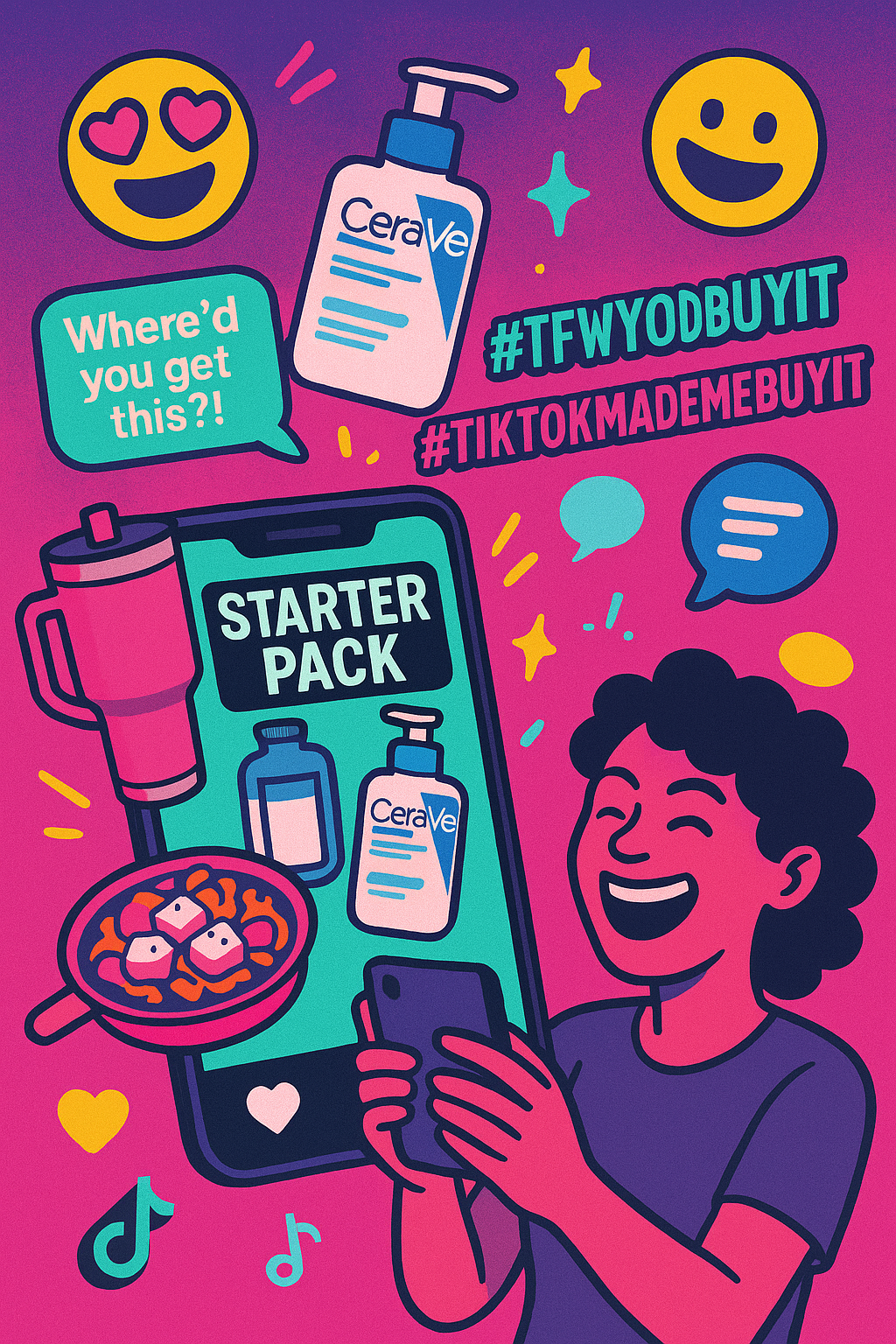A single meme can make your product sell out faster than any ad. Cultural moments aren’t just funny—they’re commerce machines.
Experts Say
1) Vogue Business: Fashion Starter‑Pack Memes
Starter‑pack memes have morphed into powerful marketing tools. Vogue Business reports that brands like Gucci, H&M and The RealReal are embedding products directly into meme content, boosting engagement and purchase intent among Gen Z. As Cathal Berragan of @PatheticFashion notes, fans constantly ask “ID?” in comments, translating direct meme exposure into product discovery.
2) TikTok Studies: Viral Content = Sales Explosion
The European Journal of Business and Management Research found that TikTok users purchase goods after seeing them on the platform—and it’s not minor. Stanley tumblers saw revenue surge from $73 M in 2019 to $750 M after going viral; feta pasta sparked a 200% sales increase; CeraVe rose 60% during lockdown, all driven by viral content.
Our Take
Marketing used to be preachy. Now it’s participatory. Memes aren’t ads—they’re conversations. When culture and commerce collide in the meme-sphere, e-commerce wins big. It’s a shift from corporate sparkle to human moments.
3 Action Steps
1. Build In‑Platform Meme Triggers
Set up a TikTok or Insta-meme feed tied to your product category. Monitor trends like “starter‑pack” or #TFWProductX in real time using tools like TrendTok or Radaar. When a format spikes, quickly adapt your visuals. Post within 24 hours to ride the wave before it fades.
2. Collaborate With Meme Creators
Reach out to meme accounts (10K–200K followers) relevant to your niche. Offer free product placements in their memes or template challenges. Track comments like “ID?” as a performance metric—aim for at least 5% comment-to-engagement ratio. Feature their memes on your own channels for added authenticity.
3. Design Products for Memeability
Embed visual hooks in your product design: bold graphics, quirky names, unusual features. Think Cybertruck-level visuals that scream “make me a meme now.” Use Shikang Peng’s image memetics study insights—design assets with high memorability scores so they’re snackable and shareable.
1. Build In‑Platform Meme Triggers
Set up a TikTok or Insta-meme feed tied to your product category. Monitor trends like “starter‑pack” or #TFWProductX in real time using tools like TrendTok or Radaar. When a format spikes, quickly adapt your visuals. Post within 24 hours to ride the wave before it fades.
2. Collaborate With Meme Creators
Reach out to meme accounts (10K–200K followers) relevant to your niche. Offer free product placements in their memes or template challenges. Track comments like “ID?” as a performance metric—aim for at least 5% comment-to-engagement ratio. Feature their memes on your own channels for added authenticity.
3. Design Products for Memeability
Embed visual hooks in your product design: bold graphics, quirky names, unusual features. Think Cybertruck-level visuals that scream “make me a meme now.” Use Shikang Peng’s image memetics study insights—design assets with high memorability scores so they’re snackable and shareable.
Memes are the new storefront. When you meet cultural moments with speed, authenticity and visuals that pop—you’re not just advertising. You’re joining the conversation—and selling while you’re at it.
Written By Emmi Rezyan





